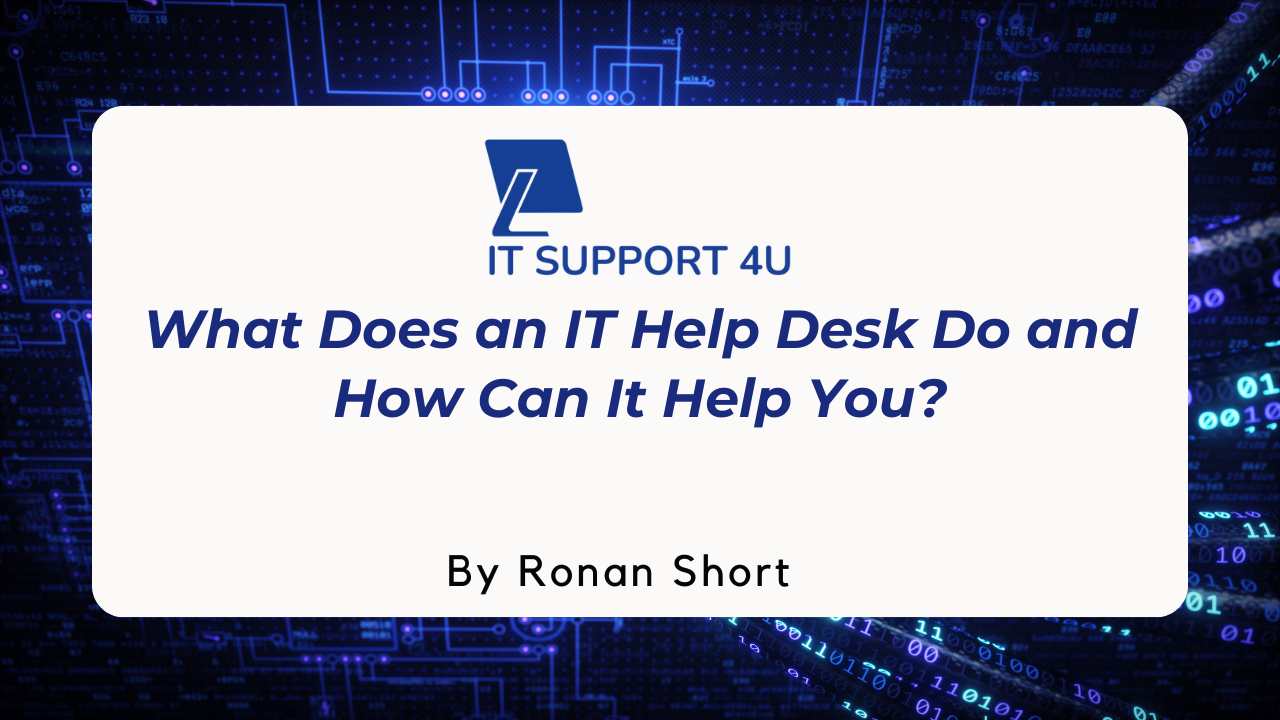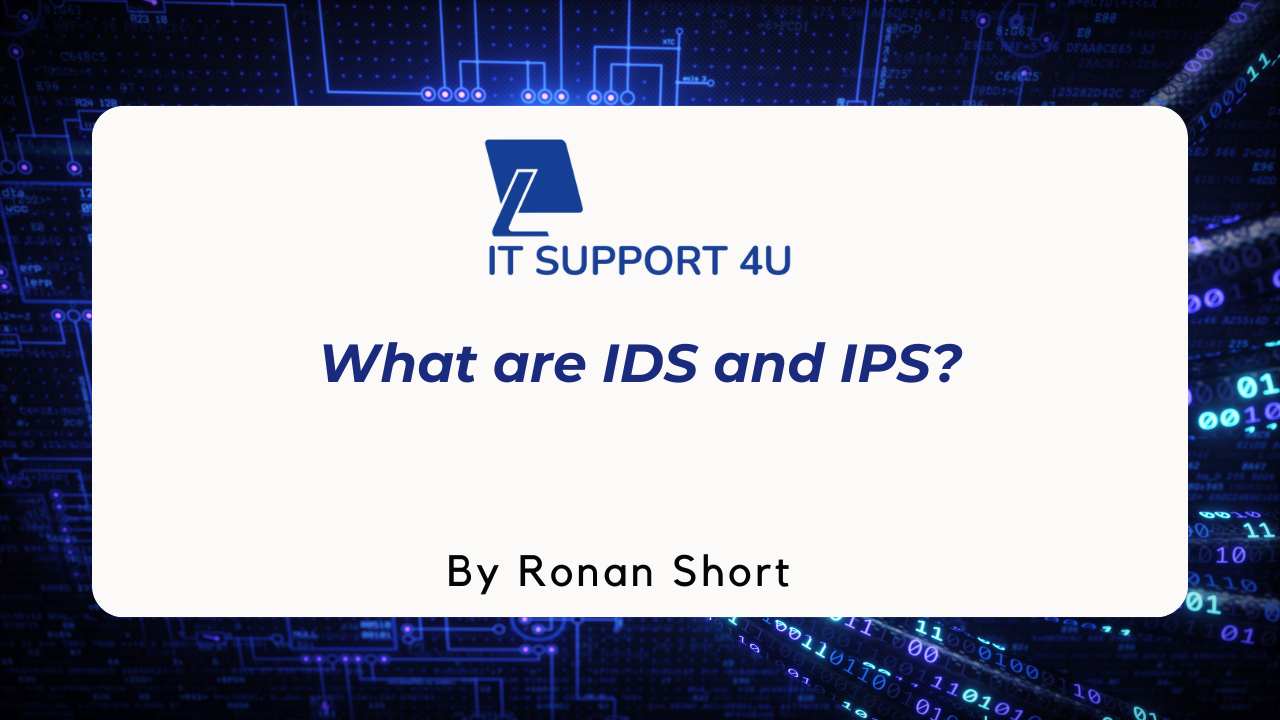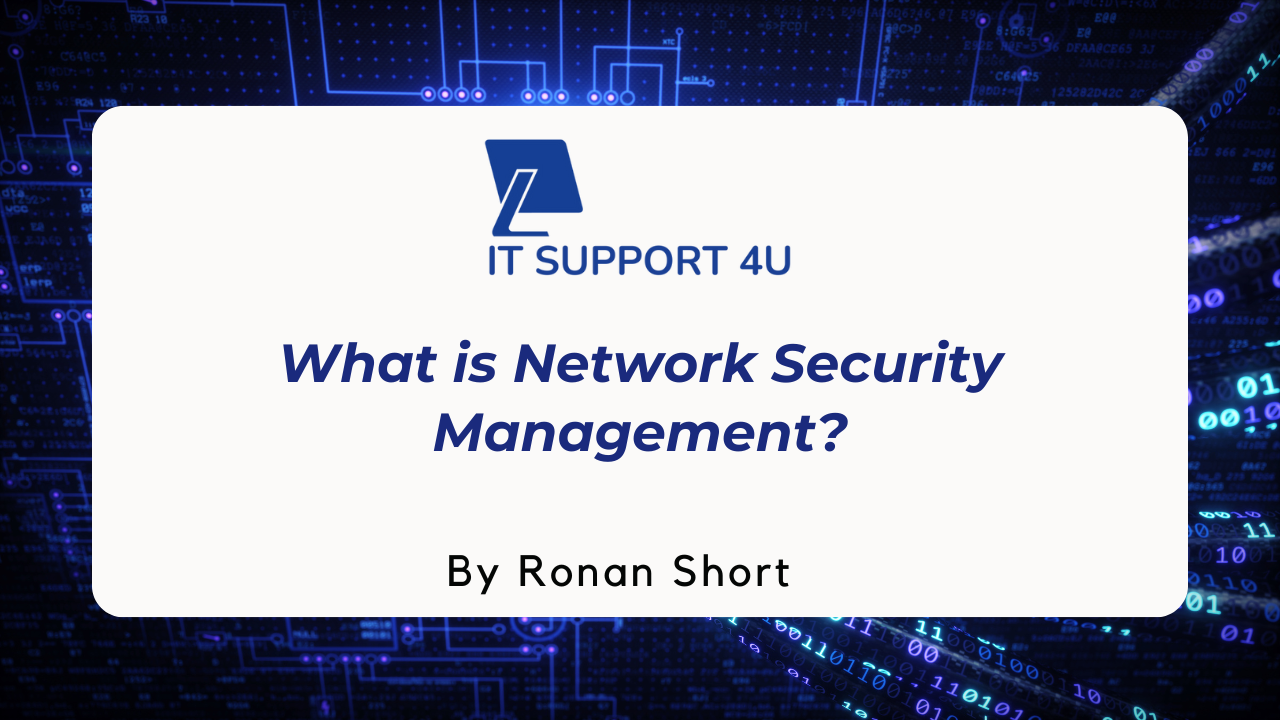In today's digital age, Irish business owners must protect their networks from cyber threats. Cybersecurity is crucial, and every day, new challenges arise in data security. It's a constant race against these threats.
A recent study shows that 39% of businesses in Ireland faced cybersecurity breaches last year. This highlights the importance of strong network defences. Research and trials have led to insights about advanced firewall technologies that can effectively guard against cyber attacks.
This article offers a comparison of different firewalls and how they protect your business's important information. It focuses on finding the best firewall to keep your network safe from cyber threats.
So, read on to learn key information to strengthen your network's security and safeguard your business
Key Takeaways
- Network-based firewalls act as a filter between your network and the outside world, making them essential for Irish businesses to protect against cyber threats from hackers.
- Application-level gateways offer granular control over specific applications or services, enhancing security by preventing unauthorised access while allowing legitimate traffic to flow smoothly.
- Next-generation firewalls combine essential features such as packet filtering, intrusion detection, data encryption, and VPN support to provide advanced protection against modern cyber attacks.
- Understanding the advantages and disadvantages of each firewall type is crucial for making an informed decision regarding network security.
The 3 Types of Firewalls Explained
When it comes to network security, there are three main types of firewalls that play a crucial role in protecting your business from cyber threats. These include Network-Based Firewalls, Application Firewalls, and Proxy Servers.
Each type has its own unique features and functions to ensure the safety of your network.
Network-Based Firewall
We use network-based firewalls to keep our business safe. They work like a filter between your company's network and the outside world. Think of it as a doorkeeper who checks on everyone coming in or going out, making sure no unwanted guests sneak through.
This type of firewall looks at all the data passing through the network, checking if it follows set rules.
Having this kind of cyber defence is key for any Irish business. It helps protect against attacks from hackers who might try to steal or damage information. We know how important keeping client data safe is, so we make sure these firewalls are always on guard, ensuring network safety around the clock.
Application Firewall
An application firewall is a type of security system that focuses on monitoring and controlling data packets as they move in and out of specific applications. It provides an additional layer of protection by examining the actual contents of the data being transmitted, thereby preventing cyber threats from exploiting vulnerabilities within the applications themselves.
Unlike network-based firewalls, which operate at the network level, an application firewall works at the application level to ensure that only authorised traffic is allowed to pass through, thus enhancing the overall security posture of your business's digital assets.
Implementing an application firewall can help safeguard sensitive business information and customer data from unauthorised access and potential cyber attacks. By enforcing strict rules for what is permissible within each application, businesses can reduce the risks associated with various online threats while maintaining a secure online environment for their operations.
Proxy Server
Now, let's understand the concept of a proxy server. A proxy server acts as an intermediary between your internal network and the Internet. It can enhance security by providing anonymity for users and filtering traffic to prevent certain types of web content from reaching your network.
By using a proxy server, you can control what type of data is allowed in and out of your network, thus strengthening your overall firewall protection.
It is essential for Irish business owners to understand how a proxy server fits into their overall network protection strategy, particularly when considering aspects such as information security, data protection, internet security, and access control.
Understanding the Different Variations of Firewalls
There are several types of firewalls, each offering different levels of security and protection. Understanding the differences between packet filtering firewalls, circuit-level gateways, application-level gateways, stateful inspection firewalls, and next-generation firewalls is critical to choosing the most secure option for your business.
Packet filtering firewall
A packet-filtering firewall operates at the network level, inspecting packets of data as they pass through a network. It works by analysing the header information of each packet, such as source and destination IP addresses, protocol type, and port numbers.
Based on predefined rules, it then decides whether to allow or block the packet from passing through. This type of firewall is efficient in processing large data volumes but may struggle with inspecting the actual contents of data packets.
Packet filtering firewalls are effective in blocking known threats based on specific criteria like IP addresses and ports, helping to prevent unauthorised access to your network. However, they do not offer advanced inspection capabilities for more sophisticated attacks or malicious content within approved protocols.
Circuit-level gateway
A circuit-level gateway is a type of firewall that works at the session layer of the OSI model. It monitors TCP handshakes to verify if the session is legitimate before allowing data transmission, providing an added layer of security for your network traffic.
This type of firewall does not inspect the actual content of the data packets, focusing instead on validating the connection itself, which can help prevent unauthorised access and potential attacks.
Implementing a circuit-level gateway can enhance your network security by creating another checkpoint for incoming and outgoing connections. However, it's essential to note that while this type of firewall provides an extra level of validation for network sessions, it may not offer granular control over specific applications or content filtering like other types of firewalls do.
Therefore, considering your specific security needs and infrastructure is crucial in determining whether a circuit-level gateway is the most suitable choice for bolstering your overall cybersecurity posture.
Application-level gateway
When discussing firewall technologies, it's important to consider the application-level gateway. This type of firewall operates at the application layer of the OSI model, making it capable of examining and filtering traffic based on specific applications or services.
By doing so, it provides granular control over which application-level protocols are permitted to pass through the firewall. This can enhance security by preventing unauthorised access to certain applications and services while still allowing legitimate traffic to flow smoothly.
Additionally, an application-level gateway can offer a high level of protection for Irish business owners by inspecting incoming traffic more deeply than other types of firewalls. It examines data payloads in packets and makes decisions based on content beyond typical port and protocol information, offering an added layer of defence against various cyber threats such as malware or unauthorised access attempts.
Stateful inspection firewall
A stateful inspection firewall is a clever type of firewall technology that scrutinises the incoming and outgoing network packets, making decisions based on the state of the connection.
It keeps track of each connection passing through it and makes sure it is legitimate. This kind of firewall can prevent certain types of cyberattacks, like IP spoofing or other types of hacking attempts, providing an additional layer of security for your business.
With its ability to understand the context and state of network connections, this type offers robust protection against various threats without compromising network performance. As Irish business owners, implementing a stateful inspection firewall can significantly enhance your overall network security by effectively analysing traffic and ensuring only safe data transmissions enter and exit your networks.
Next-generation firewall
Next-generation firewalls are advanced security systems that offer more than traditional firewall capabilities. They combine essential features such as packet filtering, intrusion detection, data encryption, and VPN support to protect your network from a wide range of threats.
These firewalls also provide endpoint security and application security to safeguard your entire system against modern cyber attacks. With their ability to inspect deeper into network traffic and identify potential risks, next-generation firewalls are an excellent choice for businesses seeking robust protection against evolving cybersecurity threats.
When considering next-generation firewalls for your business, it's crucial to evaluate their capacity for threat intelligence integration and their flexibility to adapt to new attack techniques.
Implementing these formidable defences can elevate your network's security posture and establish a reliable shield against sophisticated cyber threats while ensuring smooth operations.
Evaluating the Security of Different Firewall Types
We will delve into the advantages and disadvantages of each firewall type, as well as the crucial factors to consider in choosing the most secure option for your business. It's important to understand how each type functions in order to make an informed decision regarding your network security.
Advantages and disadvantages of each type
Considering the varied needs and challenges faced by Irish business owners, it's essential to weigh the pros and cons of different firewall types when aiming for top-tier security. Here's a concise look at the advantages and disadvantages of each firewall type:
Packet Filtering Firewall Advantages:
- Simple and cost-effective
- Low impact on system performance
- Provides basic network security
Packet Filtering Firewall disadvantages:
- Less sophisticated, does not inspect packet contents
- Vulnerable to complex threats
- Can be bypassed by skilled attackers
Circuit-Level Gateway Advantages:
- Good for hiding network information
- Efficient performance
- Useful for trusted internal users
Circuit-Level Gateway disadvantages:
- Does not examine individual packets
- Not effective against sophisticated attacks
- Limited logging and audit capabilities
Application-Level Gateway Advantages:
- Highly secure by inspecting content
- Can block specific content or services
- Provides detailed audit logs
Application-Level Gateway disadvantages:
- Can reduce network performance
- More complex to configure
- Higher cost than simpler firewalls
Stateful Inspections Firewall Advantages:
- Monitors active connections
- Better security without sacrificing performance
- Automatically blocks unsolicited traffic
Stateful Inspection Firewall disadvantages:
- Can be overwhelmed by high-volume attacks
- More expensive than packet filters
- Requires regular updates and maintenance
Next-Generation Firewall (NGFW) Advantages:
- Incorporates advanced features like intrusion prevention
- Application awareness enhances security
- Supports SSL and SSH inspection
Next-Generation Firewall (NGFW) disadvantages:
- Typically, the most expensive option
- Complex management and setup
- May require significant system resources
With the insights provided, one can discern the optimal firewall solution tailored to their business needs. Our collective experience suggests that a balanced approach often yields the best outcome.
Factors to Consider in Choosing the Most Secure Type
When evaluating the different types of firewalls, it's important to consider various factors when choosing the most secure option. Here are the key factors to consider:
- Security Capabilities: Look for a firewall that offers robust security features such as intrusion detection, content filtering, and advanced threat protection to ensure comprehensive protection.
- Scalability: Consider your business's future growth and choose a firewall that can easily scale to accommodate increasing network demands without compromising security.
- Ease of Management: Opt for a firewall with an intuitive interface and centralised management capabilities to simplify ongoing maintenance and monitoring tasks.
- Compatibility with Business Needs: Assess how well each firewall aligns with your specific business requirements, including support for VPN (Virtual Private Network) connectivity and integration with existing systems.
- Vendor Reputation and Support: Choose a firewall from reputable vendors known for providing reliable support, regular updates, and timely security patches to address emerging threats.
- Cost-Effectiveness: Evaluate the total cost of ownership, including initial investment, maintenance expenses, and potential productivity gains, to determine the most cost-effective solution.
Conclusion
In conclusion, we have explored the three main types of firewalls: Network-Based Firewalls, Application Firewalls, and Proxy Servers. Furthermore, we also learned about the different variations, such as Packet filtering firewalls, Circuit-level gateways, Application-level gateways, Stateful inspection firewalls, and Next-generation firewalls.
Evaluating their security implications revealed advantages and disadvantages that should be carefully considered when choosing the most secure type for your business. It's essential to prioritise practicality and efficiency when implementing these strategies to safeguard your network effectively.
Understanding the importance of this decision is crucial, as it can significantly impact your business's security and success.
For further guidance on selecting the right firewall for your business needs or enhancing your cybersecurity measures, consult professional resources like ITSupport 4U for further assistance.
Remember, making informed decisions about firewall security is vital to protect your business from potential cyber threats.
Get an IT Plan Today!

.jpeg)











